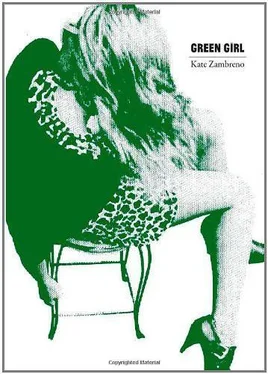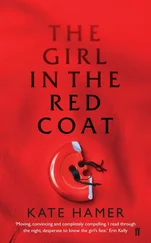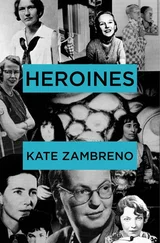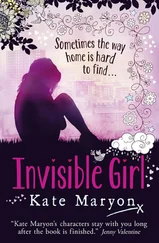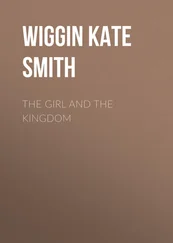Kate Zambreno - Green Girl
Здесь есть возможность читать онлайн «Kate Zambreno - Green Girl» весь текст электронной книги совершенно бесплатно (целиком полную версию без сокращений). В некоторых случаях можно слушать аудио, скачать через торрент в формате fb2 и присутствует краткое содержание. Год выпуска: 2011, Издательство: Emergency Press, Жанр: Современная проза, на английском языке. Описание произведения, (предисловие) а так же отзывы посетителей доступны на портале библиотеки ЛибКат.
- Название:Green Girl
- Автор:
- Издательство:Emergency Press
- Жанр:
- Год:2011
- ISBN:нет данных
- Рейтинг книги:5 / 5. Голосов: 1
-
Избранное:Добавить в избранное
- Отзывы:
-
Ваша оценка:
- 100
- 1
- 2
- 3
- 4
- 5
Green Girl: краткое содержание, описание и аннотация
Предлагаем к чтению аннотацию, описание, краткое содержание или предисловие (зависит от того, что написал сам автор книги «Green Girl»). Если вы не нашли необходимую информацию о книге — напишите в комментариях, мы постараемся отыскать её.
The Bell Jar
Green Girl
Green Girl — читать онлайн бесплатно полную книгу (весь текст) целиком
Ниже представлен текст книги, разбитый по страницам. Система сохранения места последней прочитанной страницы, позволяет с удобством читать онлайн бесплатно книгу «Green Girl», без необходимости каждый раз заново искать на чём Вы остановились. Поставьте закладку, и сможете в любой момент перейти на страницу, на которой закончили чтение.
Интервал:
Закладка:
Does the father know? asks Ruth. She realizes this is a stupid thing to say.
Agnes does not respond. There was no father, she says, finally, almost dreamily.
You mean, that…
Now sharply, as if she had woken up. There. Was. No. Father. She turns towards Ruth. Alright?
Ruth nods, doesn’t say anything.
Smokes furiously. I felt like I was walking around with a big scarlet letter P on me. P for pathetic.
How about KU for knocked up?
Agnes laughs, relents. W/C. With child.
There’s multiple meanings to that, Ruth quips.
That’s what I felt like. I felt like someone had taken a giant shit inside me.
They sit for a while and stare off into nothingness, each to their own thoughts.
Agnes starts talking about a film she saw the other day. Talking. Talking. Talking. Running of the mouth. Have you seen Have you seen Have you seen. Ruth lets her talk. And then And then And then. Lets her film synopsis bathe over her as she watches the ducks. Two men with dark sunglasses are watching them. She can feel them watching her and Agnes, admiring their attractiveness. She can sense they are talking about them, wondering whether they should come over, wondering which one they want, weighing their chances, their choices. She hopes they won’t come over. She wonders if Agnes sees them too. If this is who she is performing for, her always audience.
The operatic sigh. The animated gestures. The smoke was even part of Agnes’ act, pirouetting up and up into the air.
~ ~ ~
Was it the infinite sadness of her eyes that drew him or the mirror of himself that he found in the gorgeous clarity of her mind?
— F. Scott Fitzgerald, This Side of ParadiseShe began to see Teddy regularly.
He took her out to dinner. He always paid. He took her shopping at Liberty. He bought her a little black dress at Liberty. It was not even on sale.
She enjoyed trying it on for him twirling around outside of the dressing room. Well, you should definitely have that, he said. You need it. Of course. I see that.
The shopgirls seemed more respectful of her as they carefully wrapped the dress up in the black tissue paper, and laid it gently into the deep purple bag.
This is too generous of you she gushed.
It’s nothing he shrugged.
He was very curious about her, her life, her thoughts. She didn’t know what to make of his attention. So far he had not laid a hand on her. She didn’t know whether he was wooing her, whether she was supposed to eventually go to bed with him. She didn’t know if he thought of her in that way. He treated her like a child, like a delicate flower. He called her ma petite poupée, ma petite fille.
They went to bookshops on Charing Cross Road. She stared longingly at the fiction shelves. He bought her books he thought she should read— Tender is the Night, Lolita, Ulysses . She skimmed through most of them. She would pick up Ulysses and read it at random. She didn’t understand a word of it although she liked Molly Bloom.
Every green girl needs a Svengali, trading her charm for his experience.
He was always scribbling something down. He wrote for various magazines, although he said he was working on a novel.
I write too she said. Or I’d like to.
I’d love to read some of your material he said.
But this green girl does not have any material besides herself. She was a rough draft. She was impressionable, everyone left their impressions on her. To be a writer she would have to take herself back as a character. She would have to escape from her life as muse. Escape from her role as the blank slate which everyone scribbled on.
Yes he is writing a novel. She is the novel. It is the book of his Ruth, the book of her youth. He freely takes pages.
If she had looked at the open page of his notebook she would have seen these notations:
— she has a young girl’s mannerism of asking constant approval with every comment
— as ethereal as the Holy Ghost
But for now she was happy being a character. She was happy having dinners and dresses bought for her. She was happy to have someone to walk the streets with, ride the tube with. There were fewer stares.
He takes his delectable American gamine to the Queen’s Gardens to walk amidst the roses and watch the black swans curl into each other. (He writes: She is at home among the slender budding stems. She has a charming habit of biting her lower lip while deep in thought.)
He lectures her on literature she should read, movies she should see. He lectures her about the war. She takes on his opinions. She is malleable. She changes opinions easily. Changes identities easily. She is his raw material. His Galatea. A fistful of clay, gray gray gray.
He takes her to see the Francis Bacons at the Tate Britain. (He writes: Her teeth are childishly arranged in her mouth.)
She stands in front of a triptych silently, considering, as if at some sort of church, while Teddy watches her. Her facial expression smooth, difficult to detect. Three gruesome distorted bodies set against a rage-filled orange. The open mouth. What is there to do but scream? And no sound comes out. We have lost ourselves. We offer ourselves up to the popes of abandon, of frenzied despair. Our identities gone. Our faces blurred, racing.
She was overjoyed looking at them, at those faces that swirled and swirled, but when he pressed her to explain further she couldn’t. He always wanted to know her thoughts, what she was thinking. It’s horrible and beautiful, she says. Like life, horrible and beautiful. She is trying to be deep. Or maybe she is accidentally profound. Then she shivers, suddenly. (He writes: She looks far away for a moment, far far away, so far away I could never reach her.)
He takes his Ophelia to a production of Hamlet in Covent Garden. He is trying to cultivate her. As they get up to leave he finds that she has scribbled on her program that she leaves on her seat. It reads:
To die, to sleep, then nothing more? Nothing, nothing more?
He silently pockets this find. He takes out his notebook and writes:
She drowns herself in her own reflections.
~ ~ ~
I believe in the flapper as an artist in her particular field, the art of being — being young, being lovely, being an object…
— Zelda FitzgeraldHe takes her to a party. It is an adult party at an adult home with expensive, adult things. Ruth wears her new dress. She is happy to go to be looked at but she is shivering in it because it is cold inside. Ruth feels underdressed. All the women have fancy shawls and fancy jewelry and she just has the fancy dress. She stumbles around, outside of herself, looking at all of the well-dressed women looking her up and down in disdain.
Teddy presents her to the hostess. She is a sculptor, he tells Ruth. Her husband is a painter.
Your home is lovely. Ruth says shyly.
The woman looks Ruth up and down. She smiles politely. She is patronizing.
Well isn’t she lovely. She says to Teddy, as if Ruth isn’t even there. Ruth’s role is to just stand there. Always nice to meet one of Teddy’s friends, she says. As if there have been many before. She seems to have heard of Ruth before their introduction. The most important parts of an introduction always occur in one’s absence.
And what do you do? The dreaded question.
Nothing. Ruth says. She is uncomfortable. The green girl does not like to be out of her element. She does not like to leave her comfort zone. All of a sudden Ruth feels silly in her new dress and her glistened pout. She feels young and awkward and naked to the world. But inside deeper inside she is furious and decides she hates this woman and wants to leave immediately.
Читать дальшеИнтервал:
Закладка:
Похожие книги на «Green Girl»
Представляем Вашему вниманию похожие книги на «Green Girl» списком для выбора. Мы отобрали схожую по названию и смыслу литературу в надежде предоставить читателям больше вариантов отыскать новые, интересные, ещё непрочитанные произведения.
Обсуждение, отзывы о книге «Green Girl» и просто собственные мнения читателей. Оставьте ваши комментарии, напишите, что Вы думаете о произведении, его смысле или главных героях. Укажите что конкретно понравилось, а что нет, и почему Вы так считаете.
